December 09, 2024
Spotlighting the 2025 Sustainable Transport Award Finalist Cities
Every year, the Sustainable Transport Award (STA) Finalist Cities are recognized for policies and interventions that promote public transport, walking, cycling, and transit-oriented development in ways that highlight accessibility, equity, and urban innovation.
2025 marks the 20th anniversary of the STA Program! Learn about the past winners here.
As the world approaches 2030, a critical deadline for mitigating climate change under the Paris Agreement, the need to reduce emissions from urban transport is more urgent than ever. The transport sector accounts for roughly a quarter of the world’s energy-related emissions and is an area in which transformation is both necessary and possible. In many cities, models for sustainable transport already exist, as more and more governments are now prioritizing development that centers walking, cycling, and public transit. The STA program has been honoring the work of such cities since 2005, providing a key platform for knowledge-sharing and support for the transport agencies that are reimagining the future of urban mobility.
This year also marks the 20th anniversary of the STA and the program’s celebration of 22 winning cities for their progress on everything from rapid transit systems to bikeshare programs to gender inclusive planning. From the first STA winner (Bogotá, Colombia) to the most recent (Tianjin, China), the program’s community continues to grow and inspire policymakers, planners, researchers, and enthusiasts all around the world to advocate for a future where everyone has equal access to sustainable mobility.
Visit STAward.org or subscribe to the Sustainable Transport Bulletin for updates.
With the 2025 program, the STA Committee and ITDP are proud to announce the five finalist cities that have demonstrated impressive efforts to develop and implement people-centered transport solutions over the preceding year. Some are past recipients of STA recognition and others are completely new applicants, but all are working to put people and the planet at the core of their mobility strategies. This year’s finalists are Dakar, Senegal; Delhi, India; Merida, Mexico; Mexico City, Mexico; and Niteroi, Brazil. Read about the achievements of each city below and stay tuned for the announcement the winner and honorable mention in January 2025.
Dakar, Senegal
Dakar has been working to improve public transport access for its more than three million residents, notably debuting an all-electric BRT system in early 2024. The highly anticipated system, a first in the Africa region, includes over 18 kilometers spread across 23 stations and a robust fleet of over 150 articulated electric buses. The launch of the system is particularly urgent for Senegal as a 2021 study from the nation’s Executive Council for Sustainable Urban Transport (CETUD) showed that the local economy loses nearly $1.4 billion USD a year due to issues related to poor air quality, congestion, unsafe roads, and noise pollution. The system is expected to serve 300,000 passengers a day and reduce journey time from 95 to 45 minutes, leading to significant time and cost savings for users. In addition, Dakar’s BRT is expected to help mitigate over 53,000 tonnes of CO2 emissions per year as a result of supporting policies to boost ridership and curb private vehicle use.
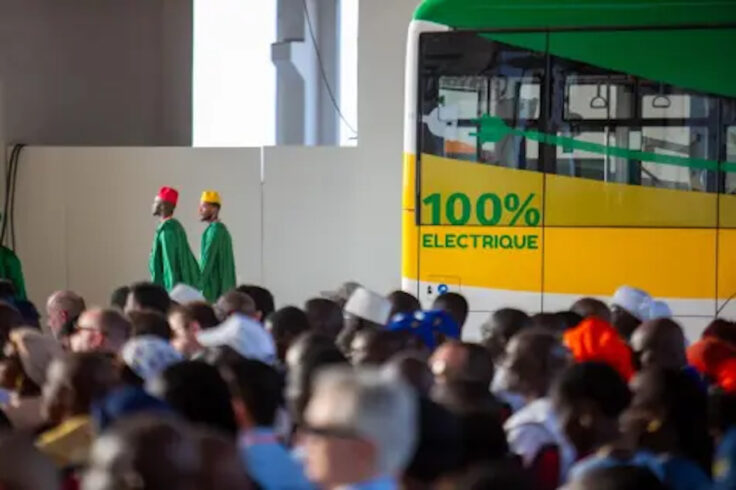
Delhi, India
The capital of the world’s most populous country, the city of New Delhi has long grappled with limited public transit, urban sprawl, and rampant car use. All of this has compounded challenges of congestion, worsening air quality, and extreme heat, especially in recent years. At the same time, the city has been working to shift residents towards more sustainable modes by expanding public transport routes and implementing more traffic demand strategies to prioritize walking, cycling, and transit. This includes the planning and development of over 80 kilometers of rail and transit networks known as the Delhi-Ghaziabad-Meerut Regional Rapid Transit System (RRTS), the first corridor of which opened in 2023. While the system is only partially operational as of 2024, future plans aim to enhance its multi-modal integrations with e-bus and metro lines as well as improved walking and cycling connections. The city hopes the implementation of the RRTS can increase the modal share of public transport in the region by nearly 30 percent.
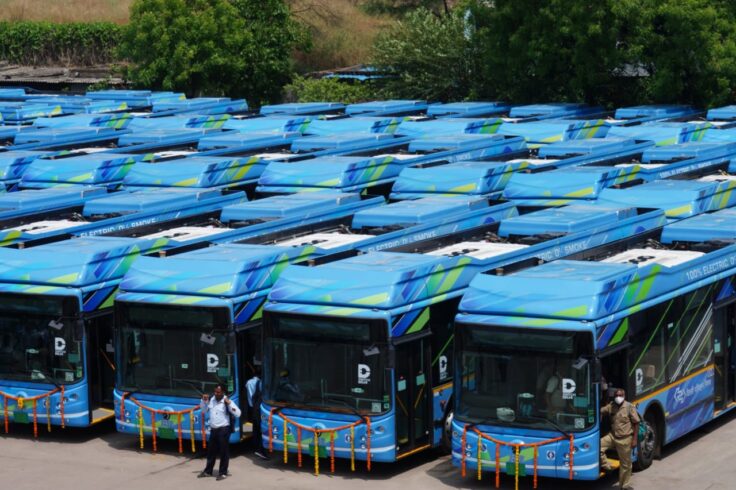
Mérida, Mexico
Mérida is the capital of the state of Yucatán and the largest city in southeastern Mexico with over 1.2 million residents. Mérida has recently been setting an example for other local governments by implementing sustainable and innovative transport projects that are grabbing headlines. Most notably over the past year, the city debuted its Va y Ven System. This system, managed by the Yucatán Transportation Agency, has improved public transport by providing users with high-quality, accessible, and low-emission vehicles for public transport trips. The system includes the launch this year of an innovative all-electric BRT corridor, IE Tram, that is composed of tram-style e-buses and is the first-of-its-kind for the country. With Va y Ven, the city has also made significant improvements to road safety, installing over 300 smart new traffic lights and related improvements at 11 major intersections.
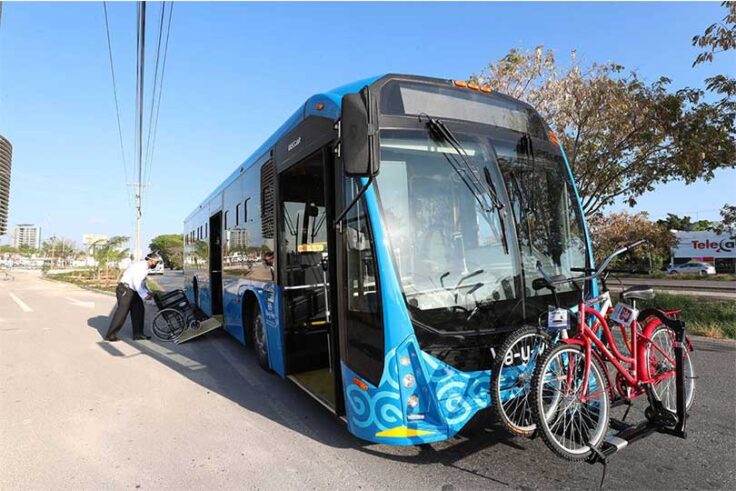
Mexico City, Mexico
The capital of Mexico, Mexico City is often considered one of the world’s most congested urban areas with a dense population reliant on private vehicles. Over the past decade, however, the city has sought to implement strategies to encourage more people to choose buses, rapid transit, and cycling over cars. Mexico City previously won the 2013 STA and, since then, has continued to make impressive improvements to connected mobility across the board. In addition to the debut of a new Cablebús cable car system, the city has been expanding its Metrobús BRT with more e-bus deployments and route extensions of over 30 kilometers over the past year. The transition to 100 e-buses in the Metrobús system will help reduce more than 56,000 tonnes of CO2 emissions annually according to the city. These efforts have been complemented by plans to renovate street infrastructure and bikeshare stations near transit lines to improve first and last mile connections. The city is now providing additional transport subsidies to low-income communities while streamlining fare payments through an Integrated Mobility Card program.
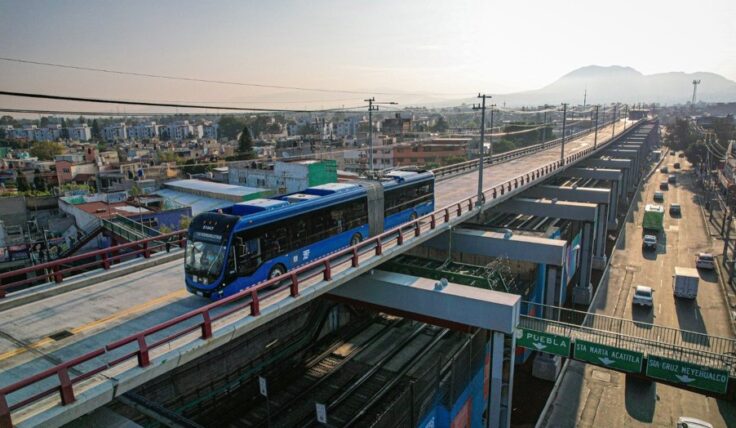
Niterói, Brazil
Niterói is a city in the state of Rio de Janeiro with over a half million residents. While a smaller metro area compared to its neighboring city of Rio, Niterói has nonetheless made strides in its transport systems to inspire other Brazilian cities. Its TransOceânica BRT corridor launched in 2019 and recently received a BRT Standard designation that highlights ongoing efforts to promote BRT and lay a foundation for future transit enhancements. The city has also planned for the debut of 30 electric buses for the system along central districts and high-traffic routes. Niterói has also committed to improving cycling access with the NitBike bikeshare system, which now facilitates over 6,200 daily trips. Along the waterfront, more than three kilometers of bike paths have been created alongside other street renovations and pedestrian promenades. In tandem with these enhancements, the city estimates it has added 23,000 square meters of public greenery and increased its number of trees by 40 percent in the preceding year.
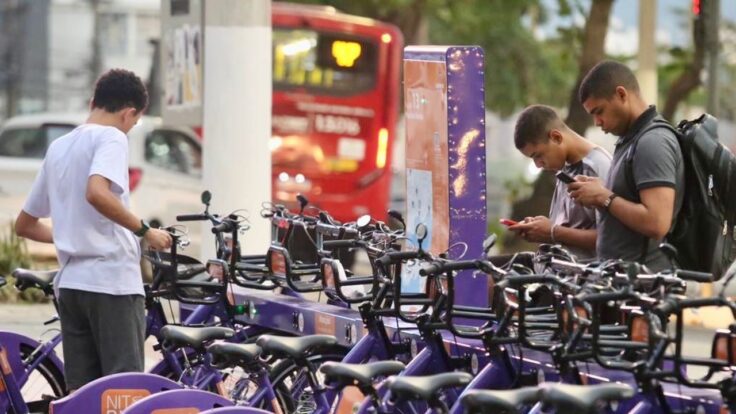
Stay tuned for more news on the 2025 Sustainable Transport Award and the winner’s announcement in January. Watch content from the 2024 program here.
